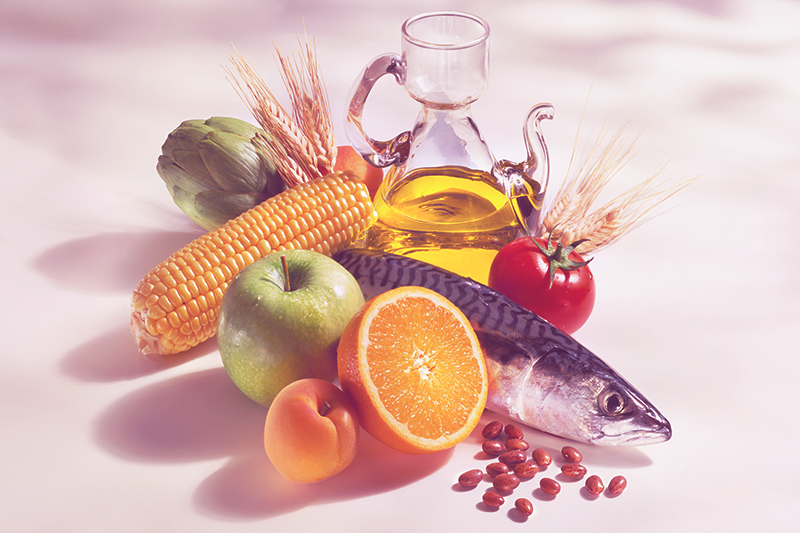Menopause and weight gain go together like Netflix and chill. That’s the unfortunate reality for many menopausal women who feel that they’re losing the fight against the dreaded middle-age spread. We recommend permanent lifestyle changes and not dieting, but nevertheless we did a deep dive on some of the more popular diets for women over 40.
It’s perfectly normal to gain between 2 and 5 pounds as a result of things like the natural loss of muscle mass and the decrease in estrogen that comes with age — but that doesn’t make it any less frustrating. Since it’s harder to lose that extra weight, many resort to crash diets in an effort to drop a few pounds fast. From the terrifying and almost definitely unsafe master cleanse to the questionable “health” shakes touted by influencers, there’s no shortage of diets to try. And when you feel like you’ve tried everything under the sun to shed weight, desperation can set in.
Whole 30
Whole 30 has been made wildly popular by celebrities, and you’re bound to have at least one friend expounding about their struggles with it on Facebook. So what is it? Whole 30 is an elimination diet that bans alcohol, sugar, grains, soy, dairy, and legumes for 30 days. After 30 days, you can slowly start adding those banned items back into your life. The diet is meant to be a healthy reset after, say, a decadent holiday season spent eating cookies and appetizers.
Supposedly, Whole 30 has a number of benefits, including better sleep, more balanced hormones, and of course, weight loss. But it’s far from ideal: Whole 30 is so restrictive that it eliminates foods that are healthy for you. Many depend on dairy products to get their calcium, which is crucial for helping prevent osteoporosis in postmenopausal women. U.S. News & World Reports ranked Whole 30 the lowest in nine categories comparing popular diets.
Rating: 1 out of 5
Postmenopausal women may miss out on a lot of important nutrients in this super-restrictive diet. Hard pass!
Keto
The ketogenic diet (or keto) is a very low-carb diet that is rich in proteins and fats. If that sounds familiar, that’s because it’s nothing new. The low-carb Atkins diet has been popular since the 1970s and the paleo diet has been around for arguably 2.5 million years. Most people turn to keto for weight loss reasons, but there is evidence that the diet could reduce seizures in children and have other positive benefits for those with certain brain disorders.
Research shows that the keto diet does help accelerate weight loss, but it has a few problems. A meat-heavy keto diet can elevate cholesterol levels. While weight loss is very possible, it can be hard to sustain over time.
Rating: 4 out of 5
The keto diet can drive weight loss for sure, but it’s definitely not for everyone. If you’re watching your cholesterol, steer clear.
Vegan
Anyone who watched What the Health, Food, Inc. or any of the many other documentaries that expose the horrors of the meat industry has probably considered going vegan. Maybe you’ve tried it, but you couldn’t quite give up cheese. Or maybe you thought it was a load of hogwash.
A vegan diet eliminates all animal products — meat, dairy, even honey and gelatin. The idea is to make humane and healthy choices for life. The healthiest vegan diet consists of plant foods like fruits, vegetables, legumes, nuts, and seeds. Here’s the thing: You can’t go vegan and expect to lose weight, but there are a number of health benefits — specifically for perimenopausal women. One study that compared the menopause symptoms of vegans to those of omnivores revealed that the vegans’ were less severe.
Rating: 3.5 out of 5
Vegans get props for focusing on long-term, healthy alternatives, but a vegan diet is not synonymous with weight loss.
Paleo
The aim of the paleo (or paleolithic) diet is to eat the foods that early humans did about 2.5 million to 10,000 years ago. The diet restricts anything that humans didn’t eat during that time period, including dairy, legumes, and grains. The idea is that we are not genetically inclined to consume parts of a modern diet, and avoiding them could prevent obesity and other health issues. It focuses on fruit, veggies, lean meats, fish, nuts, and seeds.
Since the diet lacks legumes and whole grains, followers are missing out on some of the best sources of fiber. For postmenopausal women, the lack of dairy can be a problem. Finally, paleo requires high-quality, grass-fed meats, which can be expensive and inaccessible for many people.
Rating: 3 out of 5
The paleo diet could be useful for losing or maintaining weight, but we don’t have enough evidence that it’s healthy in the long-term.
Mediterranean
The Mediterranean diet focuses on fruits, veggies, whole grains, and fish, and incorporates the cooking style of the countries surrounding the Mediterranean Sea. It also calls for a healthy splash of olive oil and the occasional glass of wine, which sounds pretty ideal as far as diets go.
It’s proven to be heart healthy. In fact, research shows that it can help reduce the risk of heart disease. But that’s not all: The Mediterranean diet is also associated with a reduced risk of Alzheimer’s and Parkinson’s diseases. Last but not least, it’s a very healthy option for women. Research shows that women who follow the diet, eating healthy portions of olive oil and nuts, can reduce their risk of breast cancer.
Rating: 5 out of 5
Delicious, incorporates wine, and reduces the risk of cancer? Clearly the winner in the diets for women over 40 category. Sign us up!
Want more about maintaining good health through food? Read How to Balance Hormones With Food.
